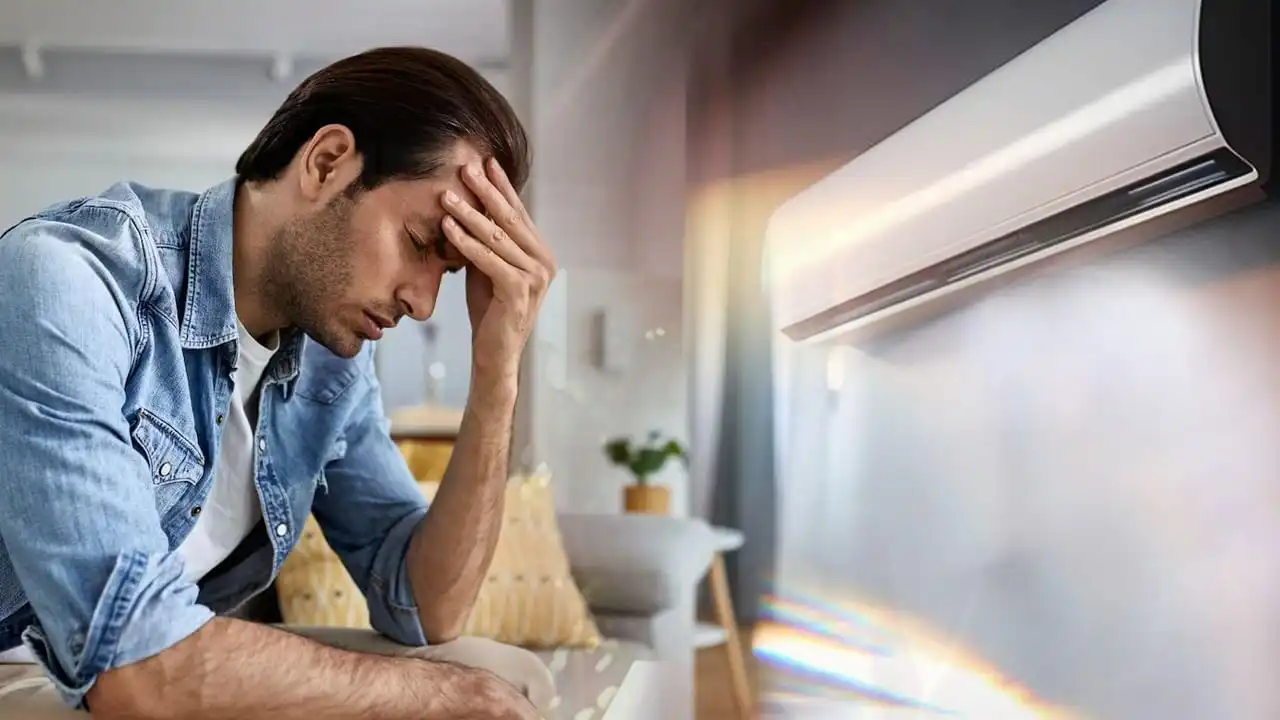
Choosing the right air conditioning unit (AC) for your home is crucial, as a poor decision can lead to skyrocketing electricity bills. If you’re considering purchasing a new AC unit, it’s important to take your time and avoid hasty decisions. A rush to buy can lead not to savings, but to significant expenditures over time. In this guide, we will discuss common mistakes people make when selecting an AC unit and what considerations should be factored in to avoid unnecessary costs. Understanding the differences between various types of AC units can save you money and improve your comfort at home.
Understanding AC Types: Inverter vs. Non-Inverter
Before making a purchase, it’s essential to ask yourself about the energy consumption of the AC unit. The market offers a wide range of choices, including window ACs, split ACs, inverter ACs, and non-inverter ACs. Knowing the distinctions between these types is crucial in making an informed decision.
What is an Inverter AC?
An inverter AC utilizes technology that regulates the speed of the compressor motor. This means that when the room reaches the desired temperature, the inverter AC does not turn off the compressor completely. Instead, it continues to operate at a lower speed, maintaining a consistent temperature while consuming less energy. This feature makes inverter ACs more energy-efficient compared to non-inverter models.
What is a Non-Inverter AC?
In contrast, a non-inverter AC turns off the compressor once the room reaches the desired cooling level. This on-off operation leads to temperature fluctuations and higher energy consumption, as the compressor has to work harder to cool the room down again when it switches back on. While non-inverter ACs may have a lower upfront cost, the long-term electricity bills can be significantly higher.
Common Mistakes When Buying an AC
1. Choosing the Wrong Type: Inverter vs. Non-Inverter
The most significant difference between inverter and non-inverter ACs is their compressor technology. Opting for a non-inverter AC out of concern for initial costs can be a costly mistake in the long run. Inverter ACs, while generally more expensive upfront, will eventually yield savings on your electricity bill. The higher energy efficiency of inverter technology makes it a preferable choice, particularly if you plan to use the unit frequently.
2. Selecting an AC with Low Star Ratings
Another common error is opting for a unit with a lower star rating, thinking it will save money during purchase. However, if your air conditioning needs are significant, a 3-star rated AC will not provide the energy efficiency required for effective cooling. Instead, investing in a 5-star rated AC will lead to substantial savings on electricity in the long run. Star ratings are an essential indicator of energy efficiency, and the higher the rating, the less electricity your unit will consume.
3. Wrong Tonnage Selection
Choosing the appropriate tonnage for your AC unit is crucial. If you have a large room and select a unit with insufficient tonnage, the AC will take longer to cool the space, leading to increased electricity consumption and higher bills. Conversely, selecting a unit with too high a tonnage for a small room can waste energy and resources. Determine whether you need a 1 ton, 1.5 ton, or 2 ton unit based on your room’s size and cooling needs.
Choosing the Right AC: Key Considerations
| Factor | Inverter AC | Non-Inverter AC |
|---|---|---|
| Energy Efficiency | High | Low |
| Initial Cost | Higher | Lower |
| Operating Cost (electricity bills) | Lower | Higher |
| Temperature Regulation | Consistent | Fluctuates |
| Noise Level | Quieter | Noisier |
Benefits of Choosing the Right AC
The benefits of selecting the right air conditioning unit extend beyond energy efficiency. Here are some of the most significant advantages:
- Financial Savings: While inverter ACs may have a higher initial cost, their energy-efficient operation leads to significantly reduced monthly electricity bills.
- Comfort: Properly chosen and sized units provide consistent cooling, enhancing overall comfort in your living space.
- Environmental Impact: Energy-efficient units reduce your carbon footprint, contributing positively to environmental conservation.
- Longevity: Investing in a quality AC unit often results in reduced maintenance costs and a longer lifespan for the appliance.
Frequently Asked Questions (FAQs)
What is the difference between inverter and non-inverter ACs?
The primary difference lies in how the compressor functions. Inverter ACs adjust the compressor speed to maintain the desired temperature, making them more energy-efficient, while non-inverter ACs turn the compressor on and off, leading to energy waste.
How can I determine the appropriate tonnage for my room?
To determine the correct tonnage, consider the size of the room, the number of windows, and how much sunlight enters the space. Generally, a 1 ton AC is suitable for rooms up to 100 square feet, while larger rooms require higher tonnage.
Are inverter ACs worth the investment?
Yes, inverter ACs are often worth the investment, as they save energy and provide consistent cooling, resulting in lower electricity bills over time. The long-term savings can outweigh the initial costs.
What are the common energy star ratings for ACs?
The common energy star ratings for AC units range from 1 to 5 stars, with 5 stars being the most energy-efficient. Higher-rated ACs consume less electricity while providing better cooling.
How often should I maintain my AC unit?
Regular maintenance is crucial for optimal performance. Schedule professional servicing at least once a year and clean or replace filters every month during peak usage to ensure efficient operation.
